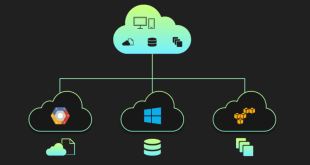In today’s digital landscape, businesses are increasingly adopting multi-cloud strategies to enhance flexibility, scalability, and reliability in their IT infrastructure. However, managing multiple clouds can become a daunting task, leading to operational complexities and increased costs. Cloud orchestration emerges as a powerful solution to streamline and optimize these diverse cloud environments seamlessly. In this blog, we delve into the rise of hybrid cloud and its potential to unlock synergy in multi-cloud strategies, highlighting the significance of cloud orchestration in this domain.
The Rise of Hybrid Cloud: Unlocking Synergy in Multi-Cloud Strategies
Hybrid cloud has gained immense popularity due to its ability to combine the benefits of public and private clouds. With a hybrid cloud approach, organizations can enjoy the best of both worlds, leveraging public cloud resources for scalability and cost-effectiveness while maintaining sensitive data and critical applications on private cloud infrastructures for enhanced security and control.
The synergy in multi-cloud strategies comes from the harmonious interplay between different cloud providers. By adopting a multi-cloud approach, businesses can avoid vendor lock-in, mitigate risks of downtime, and achieve a high level of resilience. However, managing multiple cloud environments efficiently requires a comprehensive and well-structured cloud orchestration strategy.
Understanding Cloud Orchestration
Cloud orchestration refers to the automated management and coordination of various cloud resources and services across multiple platforms. It involves streamlining processes, optimizing workloads, and ensuring seamless integration between different cloud infrastructures. The primary goal of cloud orchestration is to simplify complex tasks, improve resource allocation, and enhance overall efficiency, ultimately leading to cost savings and improved performance.
Key Benefits of Cloud Orchestration
Optimized Resource Utilization: Cloud orchestration enables businesses to allocate resources dynamically based on real-time demands, ensuring that resources are utilized efficiently and cost-effectively.
Automated Provisioning: With cloud orchestration, deploying and managing applications and services across multiple clouds becomes automated, reducing human errors and speeding up the process.
Enhanced Security and Compliance: Orchestration tools provide centralized control and monitoring, enhancing security measures, and ensuring compliance with industry regulations.
Seamless Scalability: Cloud orchestration facilitates effortless scaling of resources to accommodate fluctuations in workload, enabling businesses to adapt quickly to changing demands.
Improved Disaster Recovery: Multi-cloud orchestration allows for replication of data and applications across different cloud providers, enhancing disaster recovery capabilities and minimizing downtime risks.
Implementing Cloud Orchestration
To effectively implement cloud orchestration, businesses should consider the following steps:
Assessment and Planning: Understand the existing infrastructure, identify pain points, and define clear objectives for the orchestration process.
Tool Selection: Choose a suitable cloud orchestration platform that aligns with the organization’s requirements and integrates seamlessly with existing cloud services.
Automating Workflows: Create automated workflows for provisioning, deployment, and scaling of resources to ensure a smooth and consistent operational process.
Monitoring and Optimization: Implement monitoring tools to track performance metrics and optimize resource allocation based on data-driven insights.
Security and Compliance: Ensure that security measures are incorporated into the orchestration process to safeguard sensitive data and adhere to compliance regulations.
The Future of Cloud Orchestration
As businesses continue to embrace multi-cloud strategies, the importance of cloud orchestration will only grow. The future of cloud orchestration lies in advanced automation, AI-driven insights, and seamless integration with emerging technologies. The ability to manage complex multi-cloud environments effortlessly will become a crucial factor in gaining a competitive edge in the digital landscape.
Final Words
Cloud orchestration plays a pivotal role in streamlining multi-cloud ecosystems, unlocking synergy between different cloud platforms, and empowering businesses with unprecedented scalability, flexibility, and cost-efficiency. Embracing cloud orchestration enables organizations to harness the true potential of multi-cloud strategies and embark on a journey towards digital transformation.
Commonly Asked Questions
Q1: What is the main advantage of adopting a multi-cloud strategy?
A1: Multi-cloud strategies offer a harmonious combination of different cloud providers, providing businesses with enhanced resilience, reduced downtime risks, and the ability to avoid vendor lock-in.
Q2: How does cloud orchestration improve resource allocation?
A2: Cloud orchestration automates the allocation of resources based on real-time demands, ensuring optimized resource utilization and cost savings.
Q3: Is cloud orchestration beneficial for small businesses?
A3: Yes, cloud orchestration benefits businesses of all sizes by streamlining processes, improving efficiency, and enhancing security measures.
Q4: Can cloud orchestration enhance disaster recovery capabilities?
A4: Absolutely! Cloud orchestration facilitates data replication across multiple clouds, significantly improving disaster recovery capabilities and minimizing downtime risks.
Q5: What role will AI play in the future of cloud orchestration?
A5: AI will drive advanced automation and data-driven insights, making cloud orchestration even more efficient and capable of handling complex multi-cloud environments.
 webfily
webfily



